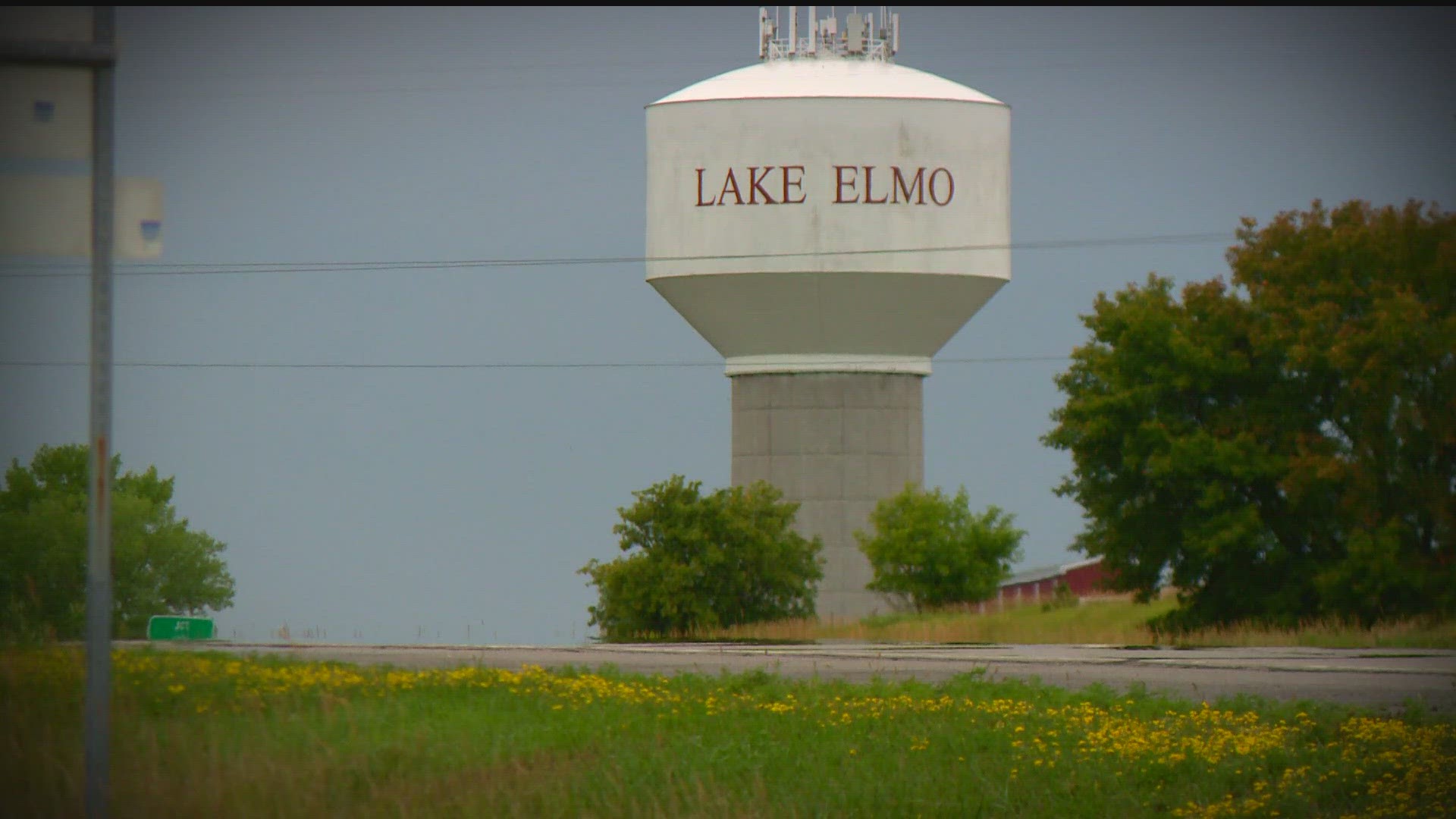LAKE ELMO, Minn. — The city of Lake Elmo is exploding so much that it's now the fastest-growing city in Minnesota.
What was a town of about 6,700 in 2005 is now nearing 14,000. Officials predict it could grow past 18,000 by 2030.
"I think people in Lake Elmo are really invested in the community and they want to see it survive and thrive," said Lake Elmo Mayor Charles Cadenhead.
The population boom is so big that up to 300 homes are built every year and now includes the city's first apartment complex.
Add in an expected 1,000 new students in the next decade and the school board recently approved a resolution to hold a $175 million bond referendum on November 7, 2023.
And then there's the water issue.
"Everybody thinks it's the land of 10,000 lakes, you've got a ton of water, right," said Cadenhead. "Well, not necessarily so."
The city gets all its water from the ground, but the Department of Natural Resources says it can legally only pump 260 million gallons of it every year. Cadenhead projecting it needs two times that by 2027.
"We are actively trying to make sure we're good stewards of the resource," he said.
What's worse is that some of the water is contaminated with chemicals called PFAS or per- and polyfluoroalkyl. For years, 3M Co. made the chemicals that leaked into underground aquifers after being disposed of.
To meet the water demand, the city says it has to use that contaminated water, but blended with clean water, Cadenhead says it's not a public threat. He says the city's two other pumps do not contain PFAS.
"We're just trying to manage it best with the pumps we have online now," said Cadenhead. "And we're trying to make sure we have neighborhoods get hooked up to clean city water; it just makes it a little more difficult in the long run."
Some solutions include imposing residential water restrictions for now and building a water treatment plant later. The city also applied for grants from the Minnesota Pollution Control Agency to fund treatment of the water and another line to divert more water from the cleaner pumps.
"We’re tying to be very solution-orientated," said Cadenhead. "But then it's our responsibility to make sure it grows in the right way."
As for the bond request, it would cost taxpayers with a median priced home of $500,000 about $17 per month.
Watch more local news:
Watch the latest local news from the Twin Cities and across Minnesota in our YouTube playlist:

